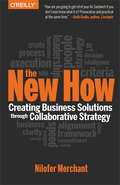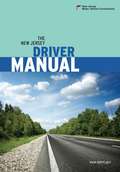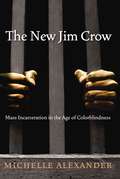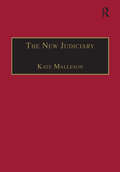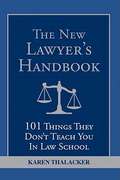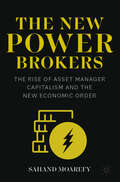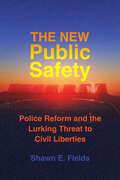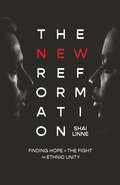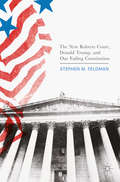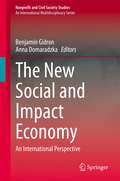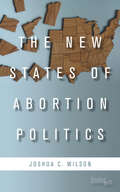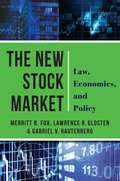- Table View
- List View
The New How [Paperback]: Creating Business Solutions Through Collaborative Strategy
by Nilofer MerchantWhat people are saying about The New How"How are you going to get rid of your Air Sandwich if you don't even know what it is? Provocative and practical at the same time."--Seth Godin, author of Linchpin"The New How is informative and provides exciting insights because the suggestions are practical and doable. Merchant gets the new reality--leadership fails not so much from flawed strategy as it does from failed processes of engagement from those responsible for implementing the strategy. In high-performing organizations, everyone acts like a leader, and they own the strategy and take actions to ensure its success. If you care about making a difference, read this book."--Barry Posner, author of The Leadership Challenge"Collaboration is a powerful, competitive weapon: this book shows you how to use it to win markets."--Mark Interrante, VP Content Products, Yahoo, Inc."In a world in which the pace of change is ever quickening, collaboration, not control, is the route to a successful organization. This book tells you how to make your organization collaborative. And Nilofer Merchant's writing is a model of clarity."--Barry Schwartz, author of The Paradox of Choice: Why More Is Less"Want to transform your organization into a collaborative enterprise? Nilofer Merchant provides insightful and practical strategies in The New How."--Padmasree Warrior, CTO, Cisco Systems, Inc."Merchant's book is a practical guide for the journey from strategy to implementation. The collaborative tools described here can help companies reach strategic success--and avoid pitfalls along the way."--Tom Kelley, General Manager, IDEO, and author of Ten Faces of InnovationOnce in a generation, a book comes along that transforms the business landscape. For today's business leaders, The New How redefines the way companies create strategies and win new markets.Management gurus have always said "people matter." But those same gurus still relegate strategy to an elite set of executives who focus on frameworks, long presentations, and hierarchical approaches. Business strategy typically has been planned by corporate chiefs in annual meetings, and then dictated to managers to carry out. The New How turns that notion on its head. After many years of working with Apple, Adobe, HP, and many other companies, Nilofer Merchant discovered the secret sauce: the best way to create a winning strategy is to include employees at all levels, helping to create strategy they not only believe in, but are also equipped to implement.In The New How, Nilofer shows today's corporate directors, executives, and managers how they can transform their traditional, top-down approach to strategy planning and execution into collaborative "stratecution" that has proven to be significantly more effective.Enhance performance and outcomes by deflating the "air sandwich" between executives in the boardroom and employeesRecognize that strategy and execution are thoroughly intertwinedUnderstand how successful strategy is founded in effective idea selection-a pile of good ideas doesn't necessarily build good strategyCreate company strategy and link it to targeted execution, using the practical models and techniques provided
The New Jersey Driver Manual 2017
by New Jersey Motor Vehicle CommissionThe New Jersey Driver Manual by the New Jersey Motor Vehicle Commission
The New Jim Crow: Mass Incarceration in the Age of Colorblindness
by Michelle AlexanderAs the United States celebrates the nation's "triumph over race" with the election of Barack Obama, the majority of young black men in major American cities are locked behind bars or have been labeled felons for life. Although Jim Crow laws have been wiped off the books, an astounding percentage of the African American community remains trapped in a subordinate status--much like their grandparents before them.In this incisive critique, former litigator-turned-legal-scholar Michelle Alexander provocatively argues that we have not ended racial caste in America: we have simply redesigned it. Alexander shows that, by targeting black men and decimating communities of color, the U.S. criminal justice system functions as a contemporary system of racial control, even as it formally adheres to the principle of color blindness. The New Jim Crow challenges the civil rights community--and all of us--to place mass incarceration at the forefront of a new movement for racial justice in America.
The New Jim Crow: Mass Incarceration in the Age of Colorblindness
by Michelle AlexanderSeldom does a book have the impact of Michelle Alexander’s The New Jim Crow. Since it was first published in 2010, it has been cited in judicial decisions and has been adopted in campus-wide and community-wide reads; it helped inspire the creation of the Marshall Project and the new $100 million Art for Justice Fund; it has been the winner of numerous prizes, including the prestigious NAACP Image Award; and it has spent nearly 250 weeks on the New York Times bestseller list. <p><p>Most important of all, it has spawned a whole generation of criminal justice reform activists and organizations motivated by Michelle Alexander’s unforgettable argument that “we have not ended racial caste in America; we have merely redesigned it.” As the Birmingham Newsproclaimed, it is “undoubtedly the most important book published in this century about the U.S.” <p><p>Now, ten years after it was first published, The New Press is proud to issue a tenth-anniversary edition with a new preface by Michelle Alexander that discusses the impact the book has had and the state of the criminal justice reform movement today.
The New Judiciary: The Effects of Expansion and Activism
by Kate MallesonDuring the last thirty years, the judiciary has undergone an unprecedented expansion in its size and power. Judges now have more influence over our private and public lives than ever before. The effect of this change has been to transform the judiciary from an inward-looking elite into an increasingly heterogeneous professional body. 'The New Judiciary' examines the developments which have taken place in the appointment, training and scrutiny of judges as a result of the expanding judicial role. It highlights the increasing tension between the requirements of judicial independence and accountability which these changes are producing. The traditional insulation of the judiciary from all external influences is being challenged by the need for greater openness and public scrutiny of the judicial process. The passing of the Human Rights Act 1998, incorporating the European Convention on Human Rights into domestic law represents another stage in this process by expanding the policy-making role of the senior judiciary still further. As a result, the continuing modernisation of the judiciary, which is the subject of this book, will be a increasingly important feature of the legal and political process in the years ahead.
The New Khaki: The Evolving Nature of Policing in India (Advances in Police Theory and Practice)
by Arvind VermaIn a democratic society, police are expected to be accountable to the people they serve, upholding the rights of citizens and following due process. In India, however, political pressure in the competitive electoral arena forces the police to adopt questionable means and dubious strategies. As a hierarchical bureaucratic organization, disciplined i
The New Lawyer's Handbook
by Karen Thalacker101 Success Strategies They Didn't Teach You in Law School - get expert advice on becoming a better lawyer. Law school prepares you to think like a lawyer, write like a lawyer, and research like a lawyer-but once you're in the door of a law firm, there's a whole new set of skills you need. The New Lawyer's Handbook guides you through the 101 essential things you need to know in order to excel. From how to handle your clients and how to work with people in your office, to why it pays to learn to play golf and maintain some semblance of a family life even as you make your billables, The New Lawyer's Handbook gives you the knowledge you need to succeed.
The New Legal Realism, Volume I: Translating Law-and-Society for Today's Legal Practice
by Elizabeth Mertz Stewart Macaulay Thomas W. MitchellThis is the first of two volumes announcing the emergence of the new legal realism as a field of study. At a time when the legal academy is turning to social science for new approaches, these volumes chart a new course for interdisciplinary research by synthesizing law on the ground, empirical research, and theory. Volume 1 lays the groundwork for this novel and comprehensive approach with an innovative mix of theoretical, historical, pedagogical, and empirical perspectives. Their empirical work covers such wide-ranging topics as the financial crisis, intellectual property battles, the legal disenfranchisement of African-American landowners, and gender and racial prejudice on law school faculties. The methodological blueprint offered here will be essential for anyone interested in the future of law-and-society. Demonstrates the importance of interdisciplinary translation between law and social sciences Introduces readers to the scholarship of today's leading new legal realists. Shows how new legal realism can provide a broader lens than the empirical legal studies movement.
The New Legal Realism, Volume II: Studying Law Globally
by Sally Engle Merry Heinz KlugThis is the second of two volumes announcing the emergence of the new legal realism. At a time when the legal academy is turning to social science for new approaches, these volumes chart a new course for interdisciplinary research by synthesizing law on the ground, empirical research, and theory. Volume 2 explores the integration of global perspectives and information into our understanding of law. Increasingly, local experiences of law are informed by broader interactions of national, international, and global law. Lawyers, judges, and other legal actors often have to respond to these broader contexts, while those pursuing justice in various global contexts must wrestle with the specific problems of translation that emerge when different concepts of law and local circumstances interact. Using empirical research, the authors in this path-breaking volume shed light on current developments in law at a global level. Demonstrates the importance of interdisciplinary translation between law and social sciences Introduces readers to the scholarship of today's leading new legal realists. Shows how new legal realism can provide a broader lens than the empirical legal studies movement.
The New Politics of Immigration and the End of Settler Societies
by Catherine DauvergneOver the past decade, a global convergence in migration policies has emerged, and with it a new, mean-spirited politics of immigration. It is now evident that the idea of a settler society, previously an important landmark in understanding migration, is a thing of the past. What are the consequences of this shift for how we imagine immigration? And for how we regulate it? This book analyzes the dramatic shift away from the settler society paradigm in light of the crisis of asylum, the fear of Islamic fundamentalism, and the demise of multiculturalism. What emerges is a radically original take on the new global politics of immigration that can explain policy paralysis in the face of rising death tolls, failing human rights arguments, and persistent state desires to treat migration as an economic calculus.
The New Politics of Numbers: Utopia, Evidence and Democracy (Executive Politics and Governance)
by Andrea Mennicken Robert SalaisThis open access book offers unique insight into how and where ideas and instruments of quantification have been adopted, and how they have come to matter. Rather than asking what quantification is, New Politics of Numbers explores what quantification does, its manifold consequences in multiple domains. It scrutinizes the power of numbers in terms of the changing relations between numbers and democracy, the politics of evidence, and dreams and schemes of bettering society. The book engages Foucault inspired studies of quantification and the economics of convention in a critical dialogue. In so doing, it provides a rich account of the plurality of possible ways in which numbers have come to govern, highlighting not only their disciplinary effects, but also the collective mobilization capacities quantification can offer. This book will be invaluable reading for academics and graduate students in a wide variety of disciplines, as well as policymakers interested in the opportunities and pitfalls of governance by numbers.
The New Power Brokers: The Rise of Asset Manager Capitalism and the New Economic Order
by Sahand MoarefyOver the course of the last 70 years, asset managers⸺from activist hedge funds to large passive index fund providers⸺have come to own the substantial majority of corporate equities in the United States, and have wielded that ownership to fundamentally reshape the economy. For most of American history, investing was simple: you purchased shares and left the operation of the company to management. If you were dissatisfied with the firm’s performance, you sold your shares. With the rise of asset managers, shareholders now attempt to directly change the companies in which they invest. The New Power Brokers chronicles the economic, legal and technological changes at the heart of this transformation in our public markets, and provides fresh perspectives on what those changes mean for corporations, investors and society as a whole.
The New Professional Service Firm: How Consultants, Accountants, and Lawyers Need to Reinvent Themselves (Business Guides on the Go)
by L. Martin van der Mandele Henk W. Volberda Rob B. WagenaarThe authors of this book alert that professional services like law, accountancy, and consultancy firms are set to face major disruption. The most important driver and enabler are the new technologies that help and in part substitute the work done by professionals. The second important disruptor is the new generation of professionals – “NewGen” – who are less interested in building their careers in a hierarchical organization and more interested in entrepreneurial challenges in small teams, with more rapid returns. In the meanwhile, major service conglomerates – the “big four” accounting firms, the “big three” consulting firms to name a few examples – build their network using their brand and substantial resources. All along, the relentless pressure from clients to receive more services at lower cost continues. Medium-sized professional firms as well as one-person independents appear to suffer most from these disruptions and are most anxious to find new ways to conduct their business. But the leaders of large firms also feel that they are increasingly unable to support the innovative entrepreneurship of their most promising professionals while their organizations institutionalize and their overheads continue to grow. This book proposes a new orientation and model of a professional service firm as an answer to these challenges, by creating a Professional Service Community. It is a synergistic team of organizations that share a vision of their role in society and main lines of their mission as well as the quality of their deliverables and their key clients. At the same time, they are independent in designing their internal business models – like recruitment, training, knowledge management, and economics. The Professional Service Community provides a unique and highly attractive level of entrepreneurship, flexibility, and efficiency to the benefit of its clients, partners, staff, and other stakeholders. It is the way of the future.
The New Public Safety: Police Reform and the Lurking Threat to Civil Liberties
by Shawn E. FieldsEfforts to reduce reliance on police have gained momentum since 2020, driven by a growing recognition that public safety is better served when addressed by experts in medicine, mental health, houselessness, and behavior intervention. But this rush to reimagine public safety carries a serious risk: a long history of abuse exists within social welfare systems, and the laws protecting us from police who perpetrate these types of abuses largely do not apply to EMTs, social workers, and other nonpolice responders. While commending efforts to remove police from places they do not belong, The New Public Safety: Police Reform and the Lurking Threat to Civil Liberties raises the alarm on the dangers these reforms can pose if undertaken without proper restraints and protections and offers practical, achievable solutions to address these threats.
The New Reformation: Finding Hope in the Fight for Ethnic Unity
by Shai LinneIn the sixteenth century, the church faced a doctrinal crisis. Today, the crisis is race.We all know that racial unity is important. But what&’s the right way to approach it? How can Christians of different ethnicities pursue unity in an environment that is so highly charged and full of landmines on all sides?In The New Reformation, Christian hip-hop artist Shai Linne shows how the gospel applies to the pursuit of ethnic unity. When it comes to ethnicity, Christians today have to fight against two tendencies: idolatry and apathy. Idolatry makes ethnicity ultimate, while apathy tends to ignore it altogether. But there is a third way, the way of the Bible. Shai explains how ethnicity—the biblical word for what we mean by &“race&”—exists for God&’s glory.Drawing from his experience as an artist-theologian, church planter, and pastor, Shai will help you chart a new way forward in addressing the critical question of what it means for people of all ethnicities to be the one people of God.
The New Reformation: Finding Hope in the Fight for Ethnic Unity
by Shai LinneIn the sixteenth century, the church faced a doctrinal crisis. Today, the crisis is race.We all know that racial unity is important. But what&’s the right way to approach it? How can Christians of different ethnicities pursue unity in an environment that is so highly charged and full of landmines on all sides?In The New Reformation, Christian hip-hop artist Shai Linne shows how the gospel applies to the pursuit of ethnic unity. When it comes to ethnicity, Christians today have to fight against two tendencies: idolatry and apathy. Idolatry makes ethnicity ultimate, while apathy tends to ignore it altogether. But there is a third way, the way of the Bible. Shai explains how ethnicity—the biblical word for what we mean by &“race&”—exists for God&’s glory.Drawing from his experience as an artist-theologian, church planter, and pastor, Shai will help you chart a new way forward in addressing the critical question of what it means for people of all ethnicities to be the one people of God.
The New Relationship between the United Kingdom and the European Union
by Carlo Panara Emmanuel GuinchardBrexit has reshuffled the cards of the relationship between the United Kingdom and the European Union. It is a one in a lifetime event, which ended nearly 50 years of EU Membership. EU law as such no longer applies in the United Kingdom and British citizens and companies no longer benefit from its advantages. Part of the previous regime has however been maintained (at times with amendments) through the series of treaties negotiated between the UK and the EU in 2019 and 2020, in particular the Trade and Cooperation Agreement of 2020, to which the 2023 Windsor Agreement can be added. The end result is a legal regime which is perhaps even more complex than EU law itself. This book aims to provide the reader with a clarification of this legal regime as well as provide context to it and suggestions to improve it. All key topics are covered, such as citizens of the EU in the UK and British citizens in the EU, trade in goods and in services, criminal justice, public procurement, Northern Ireland, the UK overseas territories, the dispute settlement, security and defence, international trade agreements of the UK post-Brexit, environmental protection, European civil justice, financial services, education and research, and the European offices of the UK local authorities and devolved administrations after Brexit. All the chapters follow, wherever possible, the same triadic structure. The first part looks at the regime prior to Brexit; the second part analyses the current regime; and the third part discusses ongoing and predictable trends. The concluding chapter attempts to identify some themes likely to impact on the forthcoming preparation of the 2026 review.
The New Roberts Court, Donald Trump, and Our Failing Constitution
by Stephen M. FeldmanThis book examines what Supreme Court Justice Antonin Scalia's death and Judge Neil Gorsuch's appointment means for the future of democracy in America. Before Scalia's death, the five conservative justices of the Roberts Court--John Roberts, Clarence Thomas, Samuel Alito, Anthony Kennedy, and Antonin Scalia--stamped a capitalized version of democracy, discussed in this book as Democracy, Inc. , with a constitutional imprimatur. The justices believed they were upholding the American way of life, but they instead placed our democratic-capitalist system in its gravest danger since World War II. Democracy, Inc. not only contravenes the framers' vision of a system balanced between the public and private spheres, government power and individual rights, but also threatens the very survival of American constitutionalism. With the looming confirmation of Gorsuch, the new Court must choose: will it follow the early Roberts Court in approving and bolstering Democracy, Inc. , or will it restore the crucial balance between the public and private spheres in our democratic-capitalist system?
The New Rules of Green Marketing: Strategies, Tools, and Inspiration for Sustainable Branding
by Jacquelyn OttmanFor too long, marketers of sustainable goods and services have targeted "deep green" consumers to promote their products – and they have little to show for their efforts. In this innovative book, Jacquelyn Ottman shows how the green market has moved beyond such niche marketing, and how marketers will find greater success promoting the inherent superior value of their offerings. Greener products are now available within every industry and are a part of our everyday lives. But they didn't get to be so ubiquitous just because they are better for the planet. Whether they were promoted as such or not, sales of green products have grown so fast because of the added value they provide: health, superior performance, good taste, cost-effectiveness, or simply convenience. This central emphasis on primary benefits – the new rules – is critical to winning over the mainstream consumer and to driving overall organizational growth. The New Rules of Green Marketing helps readers understand why value-based sustainability marketing has become a critical organizational capacity, and how readers can adopt this approach in their own organizations. Illustrated by examples from both international mainstream and the more niche "deep green" leaders who are showing everyone else the way, the book provides practical strategies, tools and inspiration for building every aspect of a credible value-based green marketing strategy, including:How to use a proactive approach to sustainability to spur innovationHow to frame environment-related benefits with relevance to mainstream brandsHow to communicate with credibility and impact – and avoid "greenwashing"How to team up with stakeholders to maximize outreach to consumersHow to use a life cycle orientation to ensure the integrity of one's offeringsHow to best take advantage of recent technological advances in social mediaDrawing on the latest data from leading researchers and reflecting on learnings from Ottman's corporate clients and other pioneers including GE, Nike, HSBC, Method, Starbucks, Timberland, HP, NatureWorks, Philips, Procter & Gamble, Stonyfield Farm and Wal-Mart, this book shows how market leaders are edging out the competition using effective value-first marketing strategies. This book captures the best of the author's previous groundbreaking books on green marketing and takes the content into the 21st century. Whereas earlier works focused on readers who were less familiar with green initiatives, this work squarely focuses on a new generation of marketers who likely themselves grew up with an appreciation of sustainability and who want and need to know how to connect effectively with mainstream consumers.
The New Sex Wars: Sexual Harm in the #MeToo Era
by Brenda CossmanRevisits the sex wars of the 1970s and ’80s and examines their influence on how we think about sexual harm in the #MeToo era#MeToo’s stunning explosion on social media in October 2017 radically changed—and amplified—conversations about sexual violence as it revealed how widespread the issue is and toppled prominent celebrities and politicians. But, as the movement spread, a conflict emerged among feminist supporters and detractors about how punishment should be doled out and how justice should be served. The New Sex Wars reveals that these clashes are nothing new. Delving into the contentious debates from the ’70s and ‘80s, Brenda Cossman traces the striking echoes in the feminist divisions of this earlier period. In exploring the history of past conflicts—the resistance to finding common ground, the media’s pleasure in portraying the debates as polarized cat fights, the simplification of viewpoints as pro- and anti-sex—she shows how they have come to shape the #MeToo era. From the ’70s to today, Cossman examines tensions between the need for recognition and protection under the law, and the colossal and ongoing failure of that law to redress historic injustice. By circumventing law altogether, #MeToo has led us to question whether justice can be served outside of the courtroom. Cossman argues for a different way forward—one based on reparative models that focus on shared desired outcomes and the willingness to understand the other side. Thoughtful and compelling, The New Sex Wars explores what can been learned from these stories, what traps we repeatedly fall into, how we have been denied our anger, and where to begin to make law work.
The New Social and Impact Economy: An International Perspective (Nonprofit and Civil Society Studies)
by Benjamin Gidron Anna DomaradzkaThis edited volume discusses the development of the new social and impact economy in ten countries around the globe. The new social and impact economy is an attempt to conceptualize developments after the 2008 economic crisis, which emphasized the pifalls of the Neo-Liberal economic system. In the aftermath of the crisis, new organizational entities evolved, which combined social and business objectives as part of their mission. Using data gathered by two recent international research projects—the ICSEM project and the FAB-MOVE project—the book provides an initial portrait of the forces at play in the evolution of the new social and impact economy, linking those to the past crisis as well as to Covid19 and comparing the emergence of the phenomenon in a varied group of countries. The book begins with an overview of the classical definitions of social economy and proposes a comprehensive concept of new social and impact economy, its characteristics, and sources. Ten country chapters as well as a comparative chapter on international social economy organizations follow. The volume concludes with an overall analysis of the data from the country chapters, forming a typology of social economy traditions and linking it to recent Post Capitalism trends. Creating a conceptual framework to analyze the new phenomena in social economy, this volume is ideal for academics and practitioners in the fields of social economy; social, economic and welfare policies; social and business entrepreneurship in a comparative fashion; social and technological innovation as well as CSR specialists and practitioners.
The New States of Abortion Politics
by Joshua WilsonThe 2014 Supreme Court ruling on McCullen v. Coakley striking down a Massachusetts law regulating anti-abortion activism marked the reengagement of the Supreme Court in abortion politics. A throwback to the days of clinic-front protests, the decision seemed a means to reinvigorate the old street politics of abortion. The Court's ruling also highlights the success of a decades' long effort by anti-abortion activists to transform the very politics of abortion. The New States of Abortion Politics, written by leading scholar Joshua C. Wilson, tells the story of this movement, from streets to legislative halls to courtrooms. With the end of clinic-front activism, lawyers and politicians took on the fight. Anti-abortion activists moved away from a doomed frontal assault on Roe v. Wade and adopted an incremental strategy--putting anti-abortion causes on the offensive in friendly state forums and placing reproductive rights advocates on the defense in the courts. The Supreme Court ruling on Whole Woman's Health v. Hellerstedt in 2016 makes the stakes for abortion politics higher than ever. This book elucidates how--and why.
The New Stock Market: Law, Economics, and Policy
by Merritt B. Fox Lawrence Glosten Gabriel RauterbergThe U.S. stock market has been transformed over the last twenty-five years. Once a market in which human beings traded at human speeds, it is now an electronic market pervaded by algorithmic trading, conducted at speeds nearing that of light. High-frequency traders participate in a large portion of all transactions, and a significant minority of all trade occurs on alternative trading systems known as “dark pools.” These developments have been widely criticized, but there is no consensus on the best regulatory response to these dramatic changes.The New Stock Market offers a comprehensive new look at how these markets work, how they fail, and how they should be regulated. Merritt B. Fox, Lawrence R. Glosten, and Gabriel V. Rauterberg describe stock markets’ institutions and regulatory architecture. They draw on the informational paradigm of microstructure economics to highlight the crucial role of information asymmetries and adverse selection in explaining market behavior, while examining a wide variety of developments in market practices and participants. The result is a compelling account of the stock market’s regulatory framework, fundamental institutions, and economic dynamics, combined with an assessment of its various controversies. The New Stock Market covers a wide range of issues including the practices of high-frequency traders, insider trading, manipulation, short selling, broker-dealer practices, and trading venue fees and rebates. The book illuminates both the existing regulatory structure of our equity trading markets and how we can improve it.
The New Terrain of International Law: Courts, Politics, Rights
by Karen J. AlterA compelling new look at the role of today's international courtsIn 1989, when the Cold War ended, there were six permanent international courts. Today there are more than two dozen that have collectively issued over thirty-seven thousand binding legal rulings. The New Terrain of International Law charts the developments and trends in the creation and role of international courts, and explains how the delegation of authority to international judicial institutions influences global and domestic politics.The New Terrain of International Law presents an in-depth look at the scope and powers of international courts operating around the world. Focusing on dispute resolution, enforcement, administrative review, and constitutional review, Karen Alter argues that international courts alter politics by providing legal, symbolic, and leverage resources that shift the political balance in favor of domestic and international actors who prefer policies more consistent with international law objectives. International courts name violations of the law and perhaps specify remedies. Alter explains how this limited power--the power to speak the law--translates into political influence, and she considers eighteen case studies, showing how international courts change state behavior. The case studies, spanning issue areas and regions of the world, collectively elucidate the political factors that often intervene to limit whether or not international courts are invoked and whether international judges dare to demand significant changes in state practices.
The New Terrorism: Actors, Strategies and Tactics
by Stefan Goertz Alexander E. StreitparthIn light of asymmetrical security threats in western democracies as well as in conflict regions, this timely book examines the actors, strategies and tactics of Islamist terrorism and transnational organized crime around the globe. The authors develop an interdisciplinary approach to understanding the ideologies, forms of cooperation, and technological means used in new forms of terrorism. The book starts with an empirical analysis of the new Jihadism as a global Islamist theology and strategy. Furthermore, it investigates the interaction, cooperation and fusion of transnational organized crime and Islamist terrorism and highlights new communication technologies as vital tools for terrorism. Lastly, the book provides an analysis of asymmetrical strategies and tactics used by terrorist organisations, and of low-level terrorism. As such, it will appeal to all political scientists and criminologists studying terrorism, as well as to professionals at various national and international security services.
